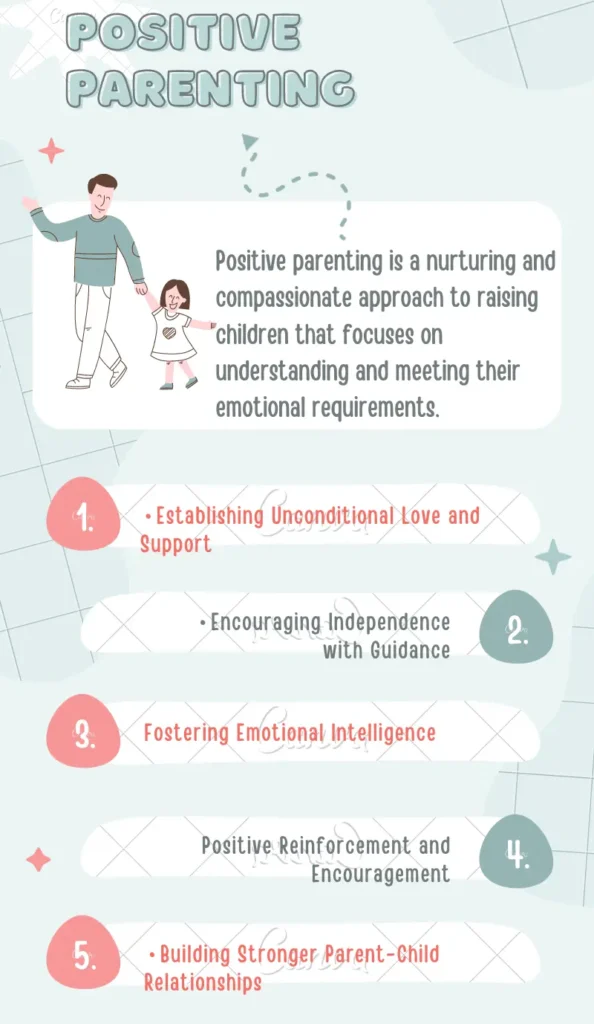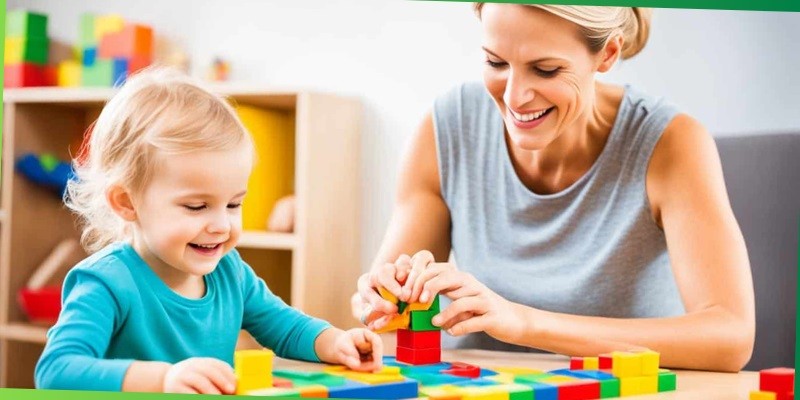Parenting can be challenging. Positive parenting techniques can help.
These techniques focus on nurturing and guiding children, rather than punishing them. They aim to build a strong relationship between parents and children, based on respect and communication. Positive parenting is not just about being kind. It’s about setting boundaries, teaching responsibility, and encouraging good behavior.
These methods have been proven to work and can make a big difference in family life. In this blog, you will learn about effective positive parenting strategies. These techniques will help you raise happy, well-adjusted kids. Get ready to discover some practical tips that you can start using today.
Building Strong Relationships
Positive parenting techniques help build strong relationships with children. Encouragement and active listening foster trust and understanding. Consistent routines create a sense of security and mutual respect.
Building strong relationships with your children is crucial for their emotional and social development. Positive parenting techniques can make a significant difference in how your children feel connected to you. Let’s dive into some actionable strategies to strengthen these bonds.
###
Effective Communication
Effective communication is the cornerstone of any strong relationship.
Speak to your children with respect and listen actively. When your child feels heard, they are more likely to open up and share their thoughts and feelings.
Use simple, clear language and avoid talking down to them. This helps build trust and mutual respect.
Ask open-ended questions to encourage dialogue. Instead of asking, “Did you have a good day?” try, “What was the best part of your day?” This invites more detailed responses and keeps the conversation flowing.
###
Quality Time
Spending quality time with your children is essential for building strong relationships.
Dedicate specific times for family activities. This could be as simple as a daily dinner or a weekly game night.
Engage in activities that your child enjoys. If your child loves painting, set aside some time to paint together. This shows that you value their interests and strengthens your bond.
Limit distractions during your time together. Turn off your phone and focus on the moment. This undivided attention makes your child feel valued and important.
Building strong relationships with your children doesn’t have to be complicated. By focusing on effective communication and quality time, you can create a loving and supportive environment for your family. What steps will you take today to strengthen your bond with your child?
Encouraging Good Behavior
Encouraging good behavior is a key part of positive parenting. It helps children learn what is expected of them. They feel more confident. They also feel more secure. Parents can use various techniques to encourage good behavior. These methods teach children important life skills. They also help build a strong parent-child relationship.
Positive Reinforcement
Positive reinforcement is a powerful tool. It involves rewarding good behavior. This can be praise, a hug, or a small treat. Praise your child when they do something right. Say things like, “Great job cleaning your room!” This makes them feel valued. It also encourages them to repeat the behavior.
Rewards do not always have to be physical. Sometimes, extra playtime or a special outing works well. The goal is to show that good behavior gets positive attention. It helps children understand the benefits of their actions. They learn that good behavior leads to good outcomes.
Setting Boundaries
Setting boundaries is essential for encouraging good behavior. Clear rules help children know what is acceptable. Explain the rules in simple terms. For example, “We do not hit. We use words when we are upset.” Consistency is key. Stick to the rules you set.
Enforce consequences calmly when rules are broken. This might be a time-out or losing a privilege. The goal is not to punish but to teach. Children learn that actions have consequences. This helps them understand the importance of following rules.
Boundaries also provide a sense of security. Children feel safe when they know what to expect. They understand the limits and can act within them. This fosters a positive environment for growth and learning.
Managing Challenges
Positive parenting techniques help in managing challenges effectively. These approaches foster a supportive environment. They encourage healthy communication and mutual respect between parents and children.
Managing challenges in parenting can often feel like navigating a maze. Every child is different, and what works for one might not work for another. However, some techniques can help make the journey smoother for both you and your child.
Handling Tantrums
Tantrums are a natural part of childhood. They can be stressful but managing them effectively is crucial. One approach is to stay calm.
When your child is having a tantrum, try taking deep breaths and speaking in a soft, soothing voice. This can help de-escalate the situation.
Next, validate their feelings. Acknowledge that they’re upset. You can say, “I see you’re very angry right now.” This shows empathy and can help them feel understood.
Offering choices can also be helpful. Instead of saying “no” outright, give them two acceptable options. This gives them a sense of control.
Conflict Resolution
Conflicts are bound to happen. Teaching your child how to resolve them is an essential life skill. Start by modeling good behavior. Show them how you handle disagreements calmly and respectfully.
Encourage open communication. Ask them to express how they feel and listen actively. You can say, “Tell me what’s bothering you.”
Promote problem-solving. Instead of giving them the solution, ask questions that lead them to find their own answers. For instance, “What do you think you could do to make this better?”
By using these techniques, you can turn challenges into opportunities for growth. What strategies have worked for you when managing parenting challenges? Share your thoughts and experiences in the comments below!

Credit: www.globalpositivenewsnetwork.com

Credit: positiveparentingideas.com
Frequently Asked Questions
What Is The 7 7 7 Rule For Parenting?
The 7 7 7 rule for parenting involves spending 7 minutes in the morning, 7 minutes after school, and 7 minutes before bed with your child. This approach fosters strong connections and consistent communication.
What Are The 3 F’s Of Positive Parenting?
The 3 F’s of positive parenting are Firm, Fair, and Friendly. Firm means setting clear boundaries. Fair ensures rules are consistent. Friendly fosters a loving, supportive environment.
What Are The 5 Positive Parenting Skills?
The five positive parenting skills are active listening, consistency, positive reinforcement, setting clear boundaries, and showing empathy. These skills foster healthy child development and strong parent-child relationships.
What Is The Most Effective Parenting Method?
The most effective parenting method combines warmth, structure, and consistency. Positive reinforcement encourages good behavior and open communication.
Conclusion
Positive parenting techniques can make a big difference. They build trust and respect. Children learn better in a loving environment. Simple steps can lead to happier families. Keep practicing patience and understanding. Every small effort counts. Your child will feel supported and valued.
Positive parenting helps everyone grow together. Keep these techniques in mind and see the positive changes.

